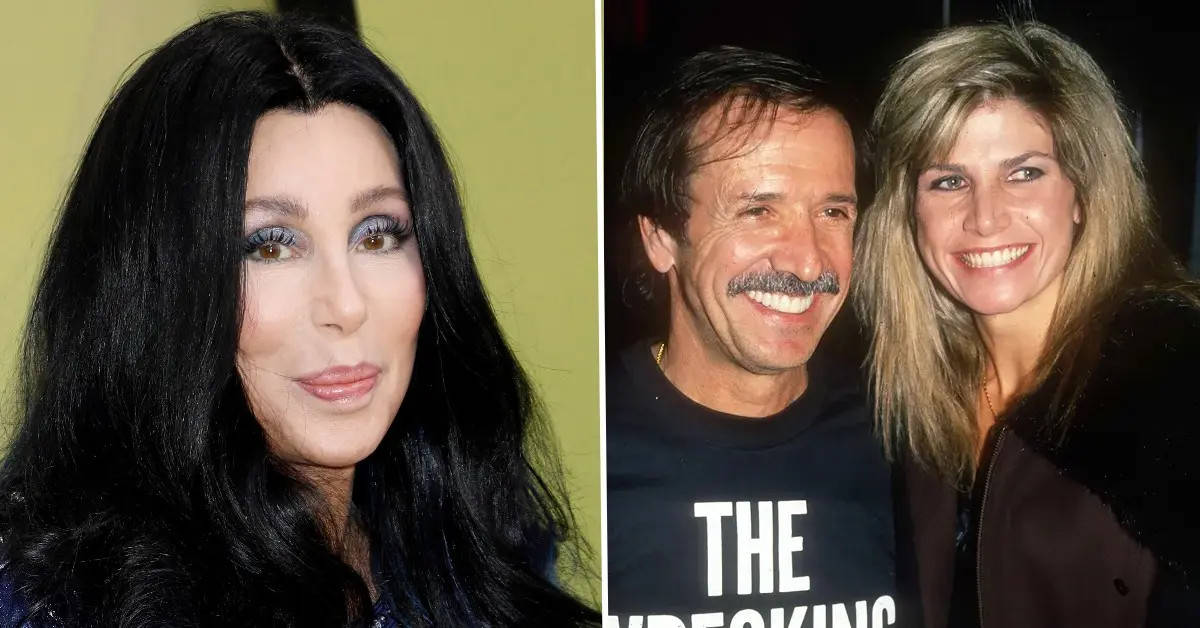Cher has recently taken legal action against Mary, the widow of her ex-husband Sonny Bono, regarding royalties. Radar Online reported that Cher is requesting a federal judge to dismiss all claims made against her. The singer filed a lawsuit against Mary in 2021, alleging that she was withholding owed money from the classic joint hits of Sonny & Chet, such as “The Beat Goes On” and “I Got You Babe.”
In the lawsuit, Cher highlighted that she and Sonny had agreed to split their royalties equally in their 1975 divorce. However, Cher claimed that Mary had been collecting royalties that she was not entitled to. Cher is seeking $1 million in damages and asking the court to validate the divorce agreement.
Cher argued that federal law grants her the authority to terminate the divorce agreement. However, Mary asserted that the 50% royalty deal had expired, and the royalties now belonged to Sonny’s heirs.
Mary stated that while Sonny could grant Cher his current rights, including a 50% royalty interest in his copyrights, he could not waive his heirs’ future termination rights. She claimed that the heirs’ right to terminate under the Copyright Act supersedes Cher’s breach of contract claim under state law.
Cher has now requested the court to dismiss the entire counterclaim and proceed with her lawsuit. She also demanded that Mary cover her legal fees associated with fighting the counterclaim.

April 2022 court hearing
A federal judge presided over the first significant court hearing on Chief’s lawsuit against Mary Bono, the widow of Sonny Bono, claiming that she owes $ 1 million in unpaid royalties for Sonny & Cher songs, including their famous hit “I Got You Babe.” The hearing, held on April 25, focused on a motion to dismiss the lawsuit, with U.S. District Judge John A. Kronstadt posing a telling hypothetical question.
Mary Bono’s attorney, Daniel J. Schacht, acknowledged that the judge’s hypothetical raised a fairness concern, seemingly undermining his client’s position. However, he argued that the Copyright Act’s provision, allowing artists and heirs to terminate and regain rights after a certain period, aims to ensure fairness and protect against enduring contracts that may be unreasonable or never-ending.
Cher’s lawyer, Peter J. Anderson, contended that the judge’s hypothetical supported the conclusion that these are state law rights, excluded from the termination scope outlined in the Copyright Act.
He emphasized that Sonny’s heirs inherited his rights under a contract that acknowledged the obligations he undertook in the marital settlement agreement. Anderson argued that the Copyright Act specifically excludes state rights and limits termination to copyright grants, while royalty rights are not governed by the Copyright Act.

Cher’s and Mary Bono’s lawsuits
Mary Bono, who succeeded Sonny in Congress following his death in a skiing accident in 1998, filed a dismissal motion citing the copyright Act as superior to any state contract or community property laws invoked by Cher in her breach of contract complaint filed in October.
Cher’s lawsuit alleges that Mary Bono and the Bono Collection trust are illegally attempting to terminate her 50% share of composition and recording royalties for Sonny & Cher songs, which she was awarded in their 1978 divorce. Mary Bono argues that the 50% stake has expired, and the rights have returned to Sonny’s heirs in accordance with the Copyright Act.
While Cher’s lawsuit specifically names Mary Bono, individually and as the trustee of The Bono Collection Trust, as the sole defendant, the action also Sonny Bono’s other heirs, including Chaz Bono, Cher’s child with Sonny, as well as Chesare Bono, Chianna Bono, and Christy Bono, according to Mary’s court filings.
Cher, a Grammy, Oscar, and Emmy winner, began her career with Sonny Bono in 1964, appearing together on The Sonny & Cher Comedy Hour before pursuing a successful solo singing career and acclaimed roles in films such as Silwood, Mask, The Witches of Eastwick, and Moonstruck.


